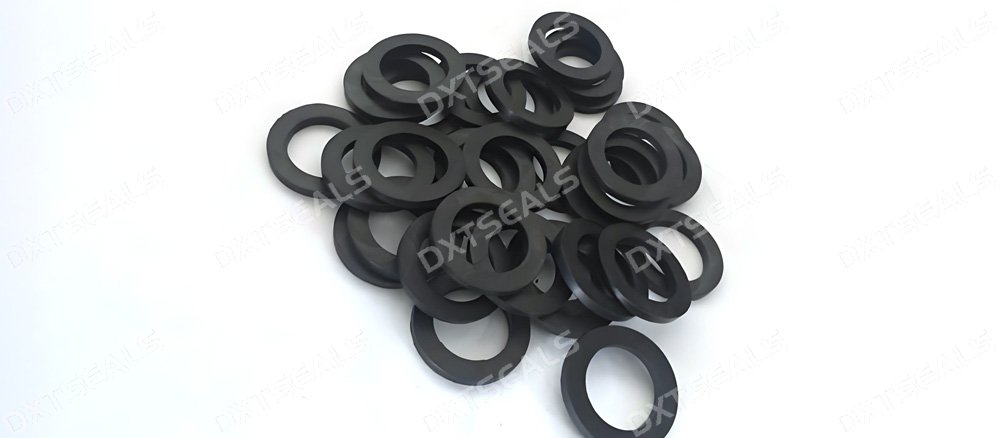
When it comes to mechanical assembly, choosing the right components is crucial to ensuring reliability, durability, and smooth operation. One often overlooked but essential component is the rubber washer. These washers are widely used in mechanical assemblies to provide sealing, reduce friction, and improve the overall efficiency of the system. In this article, we will explore the top benefits of using rubber washers in mechanical assembly and how they enhance performance across various industrial applications.
What Are Rubber Gaskets?
Rubber washers are flat, circular components made from a variety of rubber materials, including natural rubber, neoprene, nitrile, and EPDM. These washers are used to create a tight seal between components, preventing leaks and providing a cushion that absorbs vibrations. Rubber washers are highly versatile and are found in a variety of mechanical systems, from automotive and industrial machinery to plumbing and HVAC systems.
Top Benefits of Rubber Gaskets in Mechanical Assembly
1. Effective Sealing Solutions
One of the primary benefits of rubber washers is their ability to create an effective seal between mechanical parts. Rubber’s flexibility and elasticity make it an ideal material for sealing applications. In assemblies where fluid or air leaks could pose a problem, rubber washers help prevent leaks by tightly sealing the junctions between bolts, screws, and other components. This is especially important in industries such as automotive, aerospace, and plumbing, where leak prevention is critical to maintaining the integrity of the system.
2. Vibration and Noise Reduction
Rubber washers are excellent at absorbing vibrations, which is essential in mechanical assemblies that operate at high speeds or in environments with significant movement. By reducing the impact of vibrations between components, rubber washers help protect delicate machinery from wear and tear. This reduces noise levels and ensures that components remain in good condition, extending the lifespan of the mechanical assembly.
3. Corrosion Resistance
In many industrial applications, components are exposed to harsh environmental conditions such as moisture, chemicals, and temperature fluctuations. Rubber washers provide a protective barrier against corrosion by preventing direct contact between metal parts. This corrosion-resistant feature is particularly beneficial in industries such as oil and gas, marine, and chemical processing, where equipment must endure extreme conditions.
4. Increased Load Distribution
Rubber washers help distribute the load evenly across the surface of the mechanical assembly. This reduces the pressure on individual components, preventing damage and ensuring that the assembly remains secure. By distributing the load evenly, rubber washers contribute to a more stable and efficient mechanical system, reducing the risk of component failure due to excessive force or uneven pressure.
5. Easy Installation and Maintenance
Rubber washers are simple to install and maintain, making them a cost-effective solution for mechanical assembly. Their flexibility allows them to adapt to irregular surfaces, creating a tight seal even in areas with uneven or slightly misaligned parts. Additionally, rubber washers are easy to replace or adjust, which makes them a low-maintenance option for long-term use in mechanical systems.
6. Chemical and Temperature Resistance
Rubber washers made from specific materials, such as EPDM or nitrile, offer excellent resistance to a wide range of chemicals and temperature extremes. This makes them ideal for applications in the chemical, food processing, and automotive industries, where parts may come into contact with oils, solvents, or extreme temperatures. Rubber washers ensure that the assembly remains intact and functions efficiently, even when exposed to harsh substances or fluctuating temperatures.
7. Customization for Specific Needs
Rubber washers are available in a variety of sizes, shapes, and materials, allowing them to be tailored to meet specific needs in mechanical assemblies. Whether you require washers with a particular hardness, elasticity, or resistance to certain chemicals, customized rubber washers can be manufactured to fit the exact specifications of your system. This level of customization enhances the overall performance and durability of the mechanical assembly.
Common Applications of Rubber Gaskets in Mechanical Assembly
Rubber washers are used in a wide range of applications, including:
- Automotive Industry: Sealing fluid systems, reducing vibration in engines, and preventing leaks in fuel lines.
- Aerospace: Ensuring secure fittings and preventing leaks in hydraulic systems and fuel lines.
- Plumbing: Sealing pipes, faucets, and valves to prevent water leaks.
- Electronics: Providing vibration dampening and sealing in sensitive electronic components.
- HVAC Systems: Sealing air ducts and preventing leakage in heating and cooling systems.
Conclusion
Rubber washers are an invaluable component in mechanical assembly, offering a range of benefits that improve the performance, longevity, and safety of mechanical systems. From effective sealing and vibration reduction to corrosion resistance and easy maintenance, rubber washers play a crucial role in enhancing the reliability of various industrial applications. Whether you are involved in automotive, aerospace, or plumbing, using high-quality rubber washers in your assembly ensures that your equipment operates smoothly and efficiently.
Need customized rubber washers for your mechanical assembly? Contact us today to learn more about our wide range of rubber sealing solutions designed to meet the unique needs of your industry.
